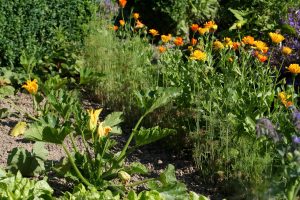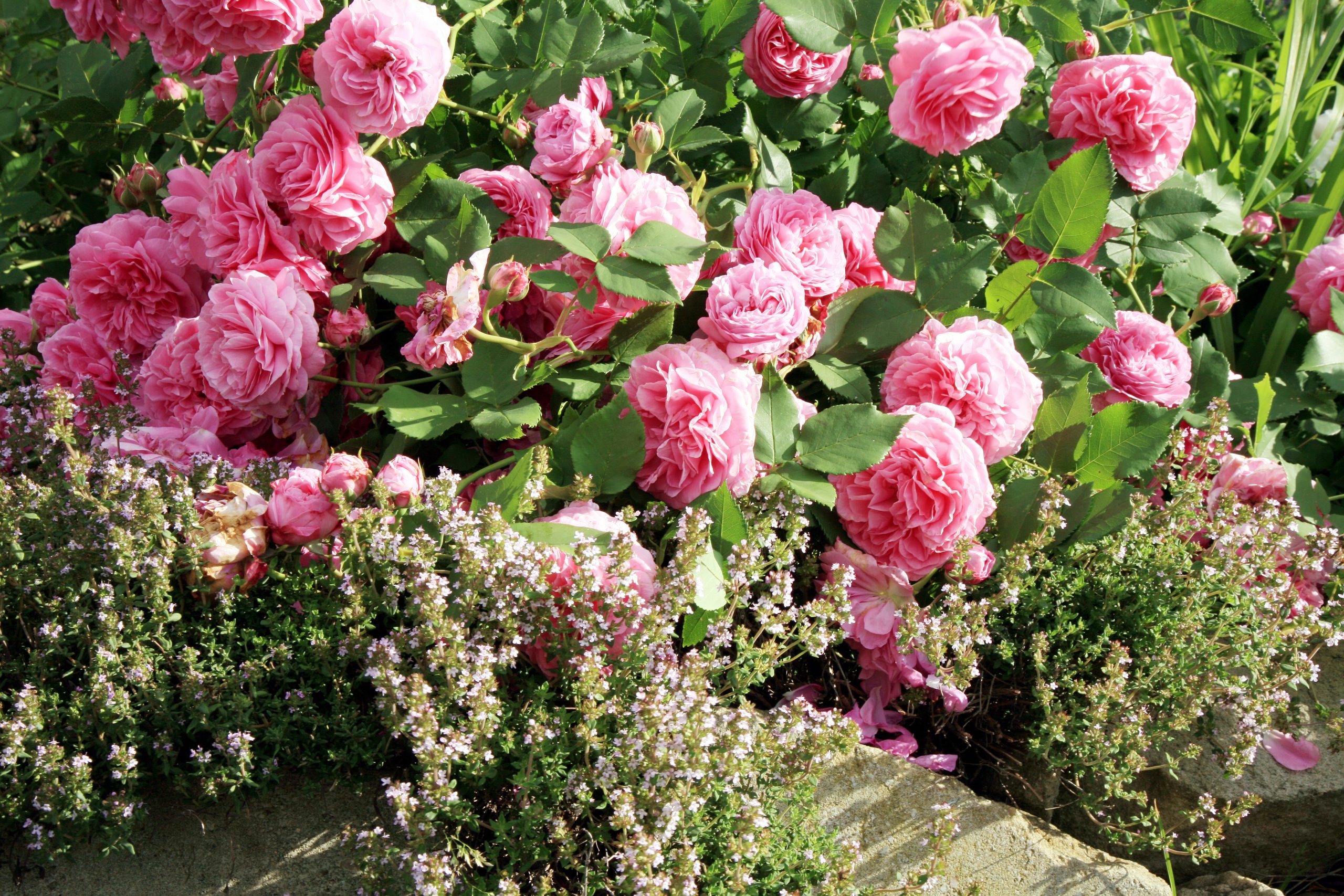Companion planting is a natural gardening technique that involves planting certain plants together to benefit each other and balance out your garden. It can be used to improve plant growth, deter pests and diseases and attract beneficial insects. At Genesis Gardens, companion planting fits perfectly with our mission to create gardens which are naturally attractive and sustainable.
Companion planting has been used for centuries by gardeners all over the world, and is particularly well-suited to the UK climate. There are many different companion planting combinations that you can use in your garden, and the best ones for you will depend on the specific plants that you are growing and the conditions in your garden.
What are the benefits of companion planting?
Improved plant growth: Some companion plants can help to improve the growth of their neighbours by providing them with nutrients, shade or support. For example, legumes such as beans and peas can fix nitrogen in the soil, which is essential for plant growth.
Pest and disease control: Some companion plants can help to deter pests and diseases from their neighbours. For instance, it’s well known that marigolds can help to repel aphids and garlic can help to repel carrot flies.
Attracting beneficial insects: Some companion plants can help to attract beneficial insects such as bees, butterflies, and ladybirds. These insects can help to pollinate your plants and control pests as we mentioned in our earlier blog Natural Pest Control Methods for a Healthy Eco-Friendly Garden.
Top tips for companion planting:
- Choose the right plants: When choosing companion plants, it is important to consider their needs and how they interact with each other. For example, some plants need full sun, while others prefer partial shade. Some plants are heavy feeders, while others require less nutrients. Make sure to do some basic research.
- Plant at the right time: As with all planting, plant companion plants at the right time of year. For example, if you are planting tomatoes, you should plant basil nearby. Neither are frost-tolerant, so you should wait until the risk of frost has passed before planting.
- Space your plants carefully: When planting companion plants, it is important to space them carefully. You don’t want to overcrowd your plants, as this can make them more susceptible to pests and diseases.
- Be aware of allelopathy: Allelopathy is the chemical interaction between plants. Some plants release chemicals that can inhibit the growth of other plants – effectively poisoning them. Some examples are Rhododendron, Black Walnut and Eucalyptus.
Try these recommended companion plant combinations:
 Tomatoes and French Marigolds: the smell of marigolds can help deter whitefly. This is particularly helpful in a greenhouse setting.
Tomatoes and French Marigolds: the smell of marigolds can help deter whitefly. This is particularly helpful in a greenhouse setting.
Brassicas (cabbage, broccoli, cauliflower, etc.) and onions, sage or mint: Onions help to repel cabbage white butterflies and mint and sage deter flea beetles. What’s more, the blue flowers of the mint plant attract pollinators. However, take care with mint which spreads wildly – best planted in pots.
Thyme and Roses: blackfly can be a real problem for roses. Planting Thyme nearby can mean its strong scent deters blackfly. Garlic, Thyme and Chives are also a good option for roses. 
Carrots and Leeks: a two-way combination! Alliums such as leeks, onions, spring onions and garlic deter carrot root fly and the smell of carrots seems to deter leek moth. For supercharged companion planting, plant Lavender nearby to boost pollination and deter even more pests.
 Calendula and Courgettes: pollinators love Calendula which will help the sometimes difficult to pollinate courgette.
Calendula and Courgettes: pollinators love Calendula which will help the sometimes difficult to pollinate courgette.
Nasturtiums and Beans: Nasturtiums act as a sacrificial crop here. Cabbage white butterflies will lay their eggs on Nasturtium plants, keeping caterpillars away from your Brassicas.
Peas and Lettuce or Spinach: The leafy nature of the lettuce or spinach helps to shade the roots of peas.
Borage and Strawberries: Borage is a good general companion plant because it is a great pollinator and attracts beneficial insects. It is also thought to repel tomato worms and cabbage worms.
These are just a few examples, and there are many other companion planting combinations that you can use in your garden. You will see some plants seem to be especially well suited to companion planting. Experiment with different combinations to see what works best for you.
Extra tips for successful companion planting
- Use a companion planting chart to help you to choose the right companion plants for your garden.
- Plant in blocks of several plants each to help create a more concentrated scent which will be more effective at repelling pests.
- Use companion plants as living mulches to suppress weeds and improve soil health.
We hope you’ll agree that companion planting is a great way to improve the health and productivity of your garden. Follow the Genesis Gardens tips above to help create a thriving garden.

